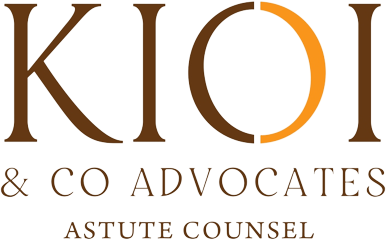
INTRODUCTION
Estate planning is a crucial process that allows individuals to manage and distribute their assets in a way that aligns with their wishes and provides for their loved ones. It involves creating a detailed plan for the transfer of property, minimizing taxes, and designating guardianship for minors, among other considerations. Proper estate planning can help avoid costly legal disputes, ensure financial security for heirs, and provide peace of mind knowing that your legacy will be preserved according to your intentions. This article explores the key elements of estate planning and why it’s essential for everyone, regardless of age or wealth.
- TRUSTS
A trust is a powerful tool for succession planning, created by a settlor who transfers assets into it. These assets are then managed by a trustee, whose responsibility is to oversee them for the benefit of the beneficiaries chosen by the settlor. For those looking to secure their family’s future, a family trust—whether living or testamentary—offers flexibility, control, and privacy. Trusts help streamline the management of assets, avoid probate, and ensure a seamless transition across generations. However, it’s essential to understand that family trusts are non-trading entities, meaning they cannot directly engage in commercial activities. If the trust wishes to participate in business ventures, it must do so through a company owned either wholly or partially by the trust.
- Living Trust
A living trust is created during the lifetime of an individual through a trust deed. The Trust Deed spells out the objects of the trust, the properties to be held under the trust, the power of the trustees, and the administration of the trust. The Trust Deed as an instrument is, in itself, proof of ownership of properties in the trust and for it to take effect, it must be registered and stamped by the Lands Registry.
Living trusts can either be revocable or irrevocable. Trusts are generally deemed irrevocable upon the settlor’s death, unless the trust deed includes an express power of revocation, which the settlor must exercise during their lifetime. An irrevocable trust cannot be amended or modified except by the consent of all beneficiaries or by a court order.
Once the trust is created and registered, it immediately becomes effective while the settlor is still alive and remains in effect even after their passing. The trust is later utilized to facilitate the transfer of assets to the beneficiaries after death.
- Testamentary trust
This type of trust is created in a will and only becomes effective after one’s death. It involves probate proceedings as it is part of a will that will need to be confirmed and adopted by the court.
- Process of Registration of Trusts
Preparation of a Trust deed
The Trust Deed must contain all particulars including the name and objectives of the trust, full names and addresses of the Trustees along with delineation of their powers, identification of assets intended for inclusion in the trust, and specification of beneficiaries and their respective allocations, if applicable.
Payment of Stamp duty.
The trust deed, is then submitted for assessment for stamp duty.
Lodging the Trust Deed for registration
Upon assessment and payment of the stamp duty, the Trust Deed is submitted for registration through the Business Registration Service portal. The application can be made by either the settlor, trustee, or an advocate.
The following information and documents are required during the submission;
- Proposed name which must have the word ‘Registered Trustees’ at the end;
- Constitutional Instrument of the Trust;
- A duly completed application for incorporation in the prescribed form (Form TR1);
- A Petition to have the trust incorporated. The document must be commissioned by a Commissioner for Oaths;
- Duly Registered trust deed (registered under RDA with the Ministry of lands) or constitution;
- Statement of donor funding/commitment;
- Title deed belonging to the trust or one of the trustees or other documents of asset or property ownership;
- Current search indicating ownership position of assets listed;
- Financial statement of the organization or of one trustee such as a current bank statement;
- Minutes appointing the Trustees;
- Brief Summary of the Trust which should not exceed 1 page;
- Curriculum vitae of the trustees or employees;
- Diagrammatic representation of the common seal; and
- Certified copies of ID, KRA Pin and passport photos of the Settlor, Trustees, beneficiaries and enforcers if any
- WILLS
A will is a legal document that outlines how a person’s assets should be distributed after their death. It allows the individual (the testator) to specify their wishes regarding the division of their estate, including any specific gifts to family members, friends, charities, guardianship of children etc.
The testator must be at least 18 years old, mentally capable, and free from coercion or undue influence when writing the will. In addition, the will must be signed in the presence of at least two witnesses (who should not be beneficiaries).
The will, will need to provide the following details;
- Executor: This is the person who will be responsible for managing the estate, paying any debts or taxes, and distributing the assets according to the will’s instructions.
- Beneficiaries: These are the individuals or organizations who will receive the assets under the estate.
- Assets: Full details and description of the assets, including their mode of distribution.
- FAMILY COMPANIES
Family companies can be an effective mode of succession planning. They ensure that the company’s vision, and operational knowledge are preserved while also providing continuity and stability. One significant advantage is that the company’s assets are already held within the company structure, which avoids the lengthy process of transferring assets after death. Additionally, a family company enjoys a separate legal identity, minimizing legal risks and offering perpetuity. It allows the family to make investments, trade, or conduct business, and the company can continue operating even if a family member who is part of the company dies.
- POWER OF ATTORNEY
A Power of Attorney (POA) is a legal document that allows you to designate power to someone else to make decisions on your behalf when you’re unable to do so yourself. A power of attorney can cover financial, legal or healthcare decisions. It ensures your affairs are handled according to your wishes, and your loved ones avoiding potentially long court processes. This is where the power of attorney comes in to ensure your financial and personal affairs are managed on your behalf therefore avoiding the need for court intervention. In the absence of a power of Attorney, your loved ones would have to go through long court processes to gain decision making authority on your behalf.
Disclaimer:
The information provided in this article is for general informational purposes only and does not constitute legal advice. While we aim to provide accurate and up-to-date content, laws and regulations may vary, and the application of legal principles can differ based on specific circumstances. For advice tailored to your unique situation, we recommend consulting with a qualified legal professional. No attorney-client relationship is formed by reading this article, and we are not liable for any actions taken based on the information provided herein.

